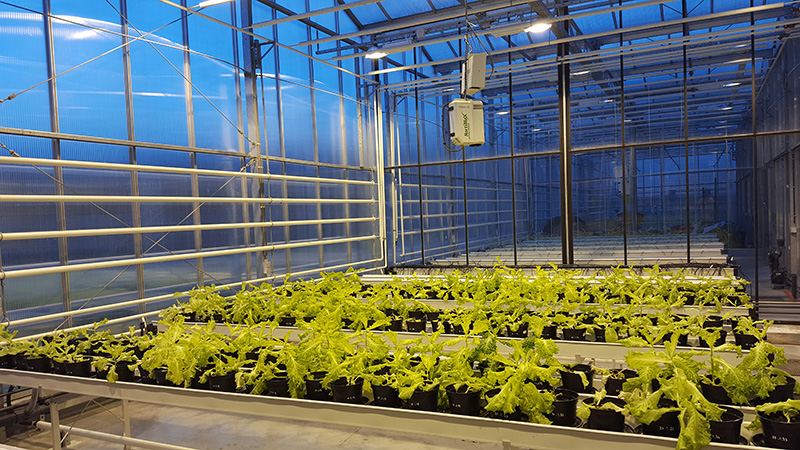Exploring nitrogen and phosphate rich organic waste streams to replace chemical fertilization of hydroponically grown lettuce
Space exploration or remote research stations face many constraints, of which is food provision and physical and psychological health is of primary concern. Bio-regenerative life support systems can provide the astronauts or researchers with fresh food, but also create an environment that helps to combat stress due to social isolation for long periods of time.
The cultivation of higher plants takes an essential role, as they contribute to all major functional aspects e.g. food production, CO2 reduction, O2 production, water recycling and waste management.
Christophe Nakhel is a doctorate student working on the nutrient delivery and water recycling part of MELiSSA project under supervision of Prof. De Pascale & Prof. Rouphael (University of Naples).
The goal is to optimize the nutrient solutions (composition, concentration or biofortification) that we will be needed to improve the quality and yield of several crops. A first series of experiments have been executed in the growth chamber of the University of Naples, where light, temperature & humidity are controlled, using an NFT hydroponic system. At Ghent University, under the lead of Prof. Geelen, the objective is to create a circular system that allows the recovery and use of waste generated at the remote research stations.
To this end lettuce will be grown in the presence of different organic waste streams including urine derived products that are rich in nitrogen and phosphate. In collaboration with Prof. Nico Boon (CMET Lab) the identity of microbes that relate to the use of waste materials will be analysed.
The first screening experiment was held in ILVO greenhouses on our candidate crop lettuce, and based on the results, the best sources for nitrogen and phosphate will be chosen to carry out the experiments that approach the conditions used in commercial production sites.

